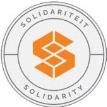Solidarity lays charges at UN bodies against SA’s race practices
10 May 2017
Solidarity today filed a complaint with the International Labour Organisation (ILO) about South Africa’s affirmative action and black economic empowerment policies. Solidarity contends that government is committing unfair racial discrimination, and requests the ILO to investigate the matter and to give a ruling in this regard.
This complaint of Solidarity is one of three that will be lodged against government with various bodies of the United Nations in Geneva this week about racism and the double standards that apply to the way in which racism is handled. On Thursday, Solidarity will file a complaint with the United Nations’ Human Rights Commission and on Friday it will do so at the United Nations’ Committee on the Elimination of Racial Discrimination (CERD).
“All of us are fed-up with race and the double standards that apply when dealing with the issue. The time of remaining silent as far as this matter is concerned is up. We dare not allow that minorities, and specifically white people, are being criminalised on an ongoing basis. Practicing double standards when it comes to matters of race are not only wrong; the practice is dangerous too. It has become so much part and parcel of South African society that it almost goes unnoticed. The purpose of our campaign is to show that the emperor is naked, and by so doing, we want to normalise the situation,” Dr Dirk Hermann, Solidarity’s chief executive said.
Solidarity is indicting the South African government in terms of Convention 111 of the International Labour Organisation’s which, among other things, requires that affirmative action measures are measures aimed at redress and are temporary in nature.
In its complaint Solidarity contends that government’s system of racial quotas does not promote non-racialism as required by the Constitution; rather it has resulted in a new form of racism. The system has nothing to do with redress but everything with race which gives rise to institutionalised racism.
In Solidarity’s complaint brought before the ILO it is also stated that the current racial quota system categorises people in South Africa according to the apartheid categories of race. People are then promoted or appointed according to a mathematical formula based on the national race demographics. This mathematical system totally ignores redress of the disadvantaged. In its complaint Solidarity contends that this mathematical racial system has as effect that a person’s right to practice a profession is limited to the level of representivity of the specific race the person belongs to.
As far as black economic empowerment is concerned, Solidarity contends that the system only benefits a small elite group. The system in terms of which companies receive points for appointments made according to race and according to ownership, only means a further division of South Africa according to race. According to Solidarity’s complaint, the race classification system in South Africa is not achieving redress and it is permanent in nature.
“South Africa is allowing a growing institutionalisation of racial classification. Not only are crude racial practices regarded as normal, but they are regarded as essential. Someone has to say that it is wrong. In South Africa norms about race have become so skewed that external watchdogs, such as the United Nations and the International Labour Organisation need to give an opinion on the matter,” Hermann said.
According to Solidarity, it has now exhausted all internal remedies in South Africa and it is now resorting to the ILO to comment on whether the South African government complies with Convention 111.
According to Hermann, South Africa is part of a larger international community through the United Nations,
and specifically the International Labour Organisation, and as such the country cannot act in isolation. There is agreement among countries as to what constitutes fair conduct towards their citizens and towards one another within the discipline of the United Nations. In Solidarity’s opinion, it is clear that as far as its affirmative action and black empowerment practices are concerned, South Africa finds itself outside of what constitute international limits of fairness. The international community has a duty to take steps against the South African government.
Earlier this week, Solidarity also filed complaints about racism and the double standards that apply when racism is handled in the country with the South African Parliament and the South African Human Rights Commission.
Issued by Dirk Hermann - Chief Executive: Solidarity – 10 May 2017

